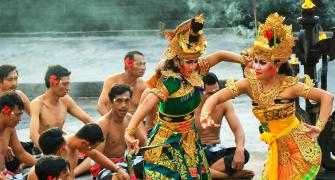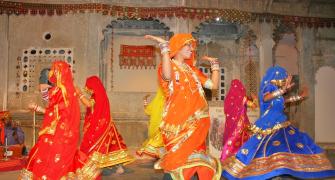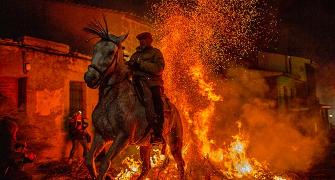It turns 20 and Mumbai will celebrate, says Avantika Bhuyan.
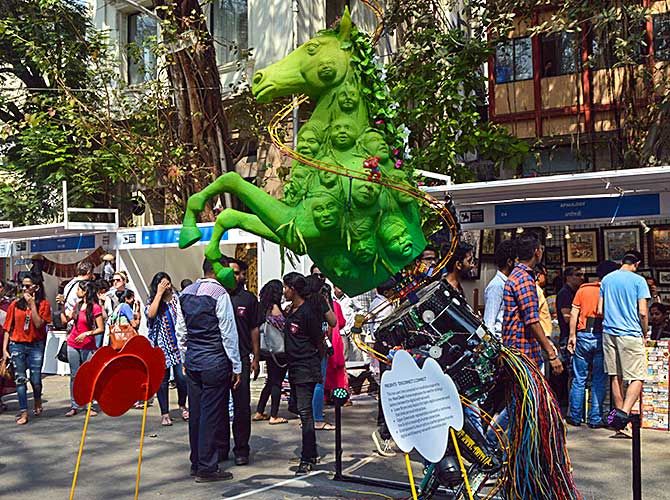
Every year, on the first Saturday of February, South Mumbai's crescent-shaped art precinct comes alive with stalls, street performances, exhibitions, plays, heritage walks, talks and more.
This year, the Kala Ghoda Arts Festival promises to be a little different.
'Kala Ghoda at 20' seeks to act as a time capsule of sorts, taking one back to 1999, when the iconic fest was first held.

One will get a glimpse of how the festival democratised art by bringing it out of intimidating closed spaces and into the neighbourhood -- and also how, for nine days during each edition, Mumbaikars made the festival their own by attending events in full force at venues such as the Cross Maidan, David Sassoon Library, Rampart Row, Horniman Circle Gardens and the lawns of the Chhatrapati Shivaji Maharaj Vastu Sangrahalaya.

"Each session at the KGAF 2019 is about going back in time. It also casts a look at the evolution of culture in the city," says festival coordinator Nicole Mody.
For instance, the cinema segment will feature iconic films screened at the KGAF over the past 20 years.
The powerful play, Dayashankar Ki Diary, performed by Ashish Vidyarthi and written and directed by Nadira Babbar, will also celebrate its 20-year run at the festival.

This particular event is evoking a sense of nostalgia among those who have attended KGAF over the years.
For instance, for travel writer-editor Sudha Ganapathi, who has attended every edition of the festival save one, her earliest memories are of wandering around Rampart Row.
"I have seen the festival grow from a small intimate event to the mela that it is today," she says.
Even though the scale and stature of the festival has evolved, certain things have remained constant.
"This is a festival for all. Hence, there is no charge for any event. That hasn't changed.
"Also, the sense of community is extremely important, not just in terms of people attending the festival, but also the people conducting it. We have a wonderful team of volunteers drawn from the community," says Maneck Davar, chairperson, Kala Ghoda Association.
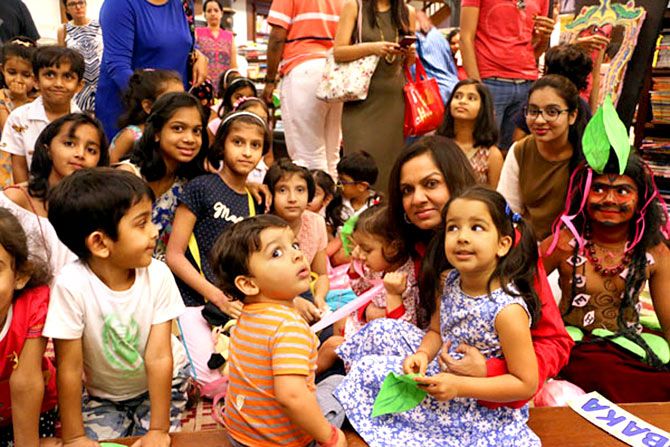
The programming this year is in sync with KGAF's promise of having something for everyone.
Thus, the strong children's programme has for its theme DREAM STEAM (science, technology, engineering, arts, maths).
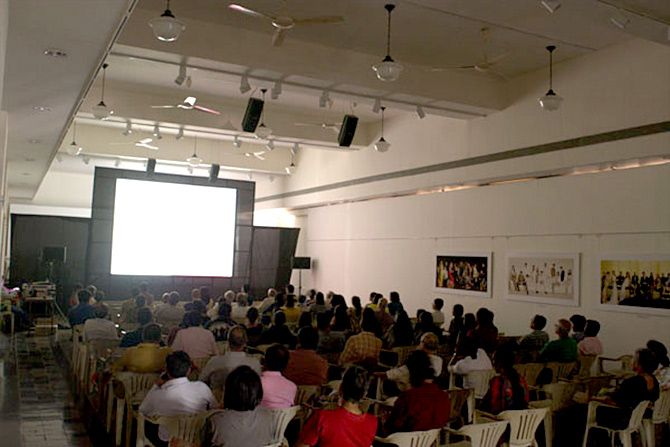
In cinema, the focus will be on women's power and will offer films by female directors and technicians.
'Alternate Voices' will offer cinema with alternative points of view, be it through LGBTQ films or regional cinema.
The theatre segment seeks to highlight the best of English, Marathi, Gujarati and Parsi plays, with performances such as Drama Queen by Suchitra Krishnamoorthi and Anandiben by Manoj Shah.

This year will see a panel on queer writing.
Also, the festival will celebrate 150 years of Gandhi through exhibitions, talks, films and a showcase of khadi.
The literature segment will focus on important issues of the day, be it the idea of the nation and its beleaguered boundaries, or the overturning of Section 377 and new meanings of love.
"We have a talk by Justice D Y Chandrachud, not just about the Supreme Court verdict on Sec 377, but also about the role of the Constitution in guiding society.
"Also, we have delved strongly within the literary community and are giving a platform to those writers and commentators who are not always at the forefront of literary discourse," says Indira Chandrasekhar, curator of the literature segment.

The festival offers layered storytelling.
For instance, heritage walks and a photo exhibition, Bombay Then and Now (drawn from the rich archive of the Sarmaya Arts Foundation), together create a narrative of how Mumbai has changed over time.

"Through landmarks such as the Wodehouse Gymkhana, we are looking at what the place was like 400 years ago, pre-Independence and post-Independence," says Bharat Gothoskar, curator, who has created 20 pit stops during each hour-and-a-half walk.

While the packed programming offers myriad options to culture enthusiasts, some wonder if bigger is necessarily better.
"In some cases, the nuance and thought-provoking events of the past have given way to blatant product placements, especially in the public art installations. I'm not sure if more variety has translated into better quality," says Ganapathi.
But she still intends to attend the KGAF -- it's a two-decade-old habit, after all.
The Kala Ghoda Arts Festival will be held in Mumbai between February 2-10.



